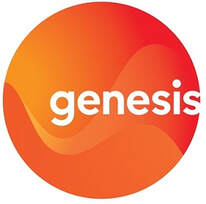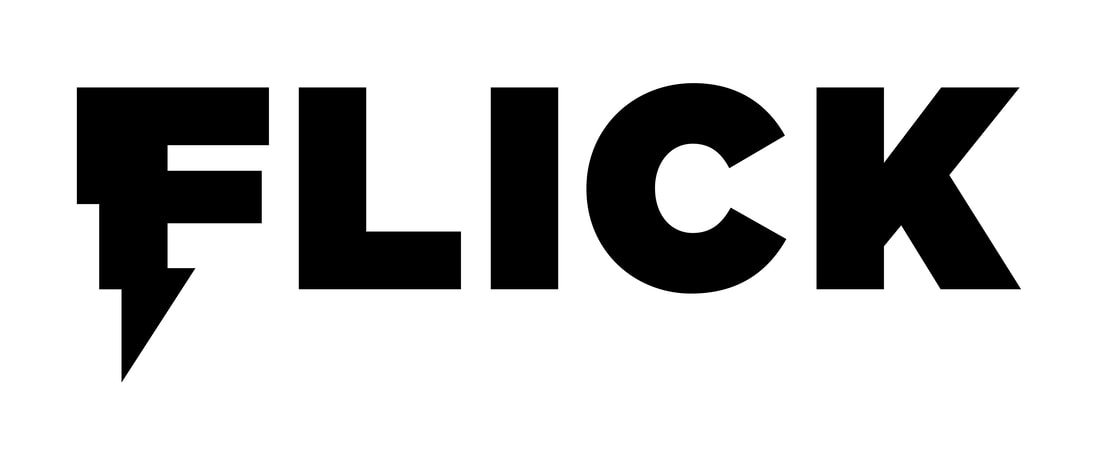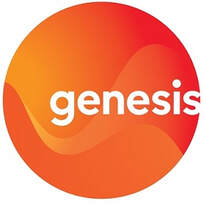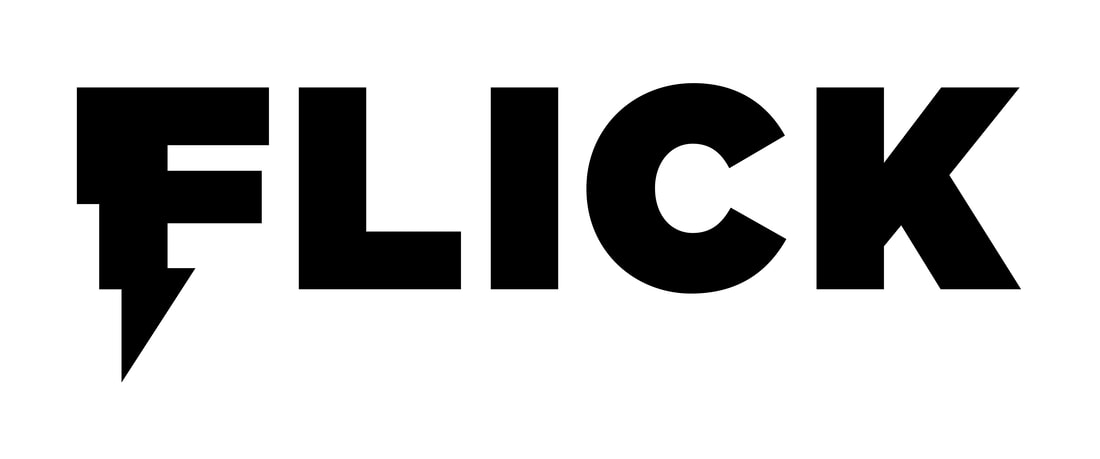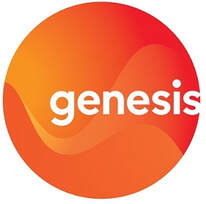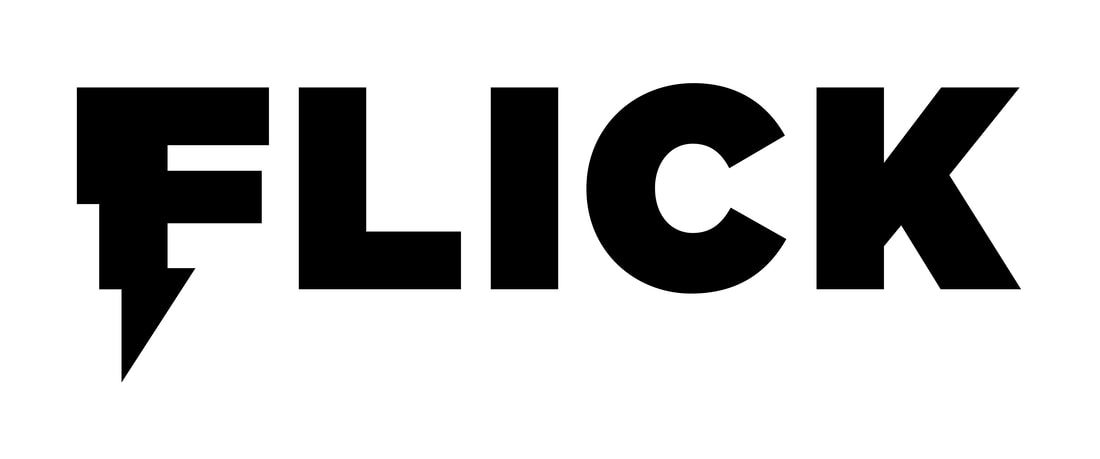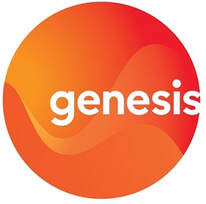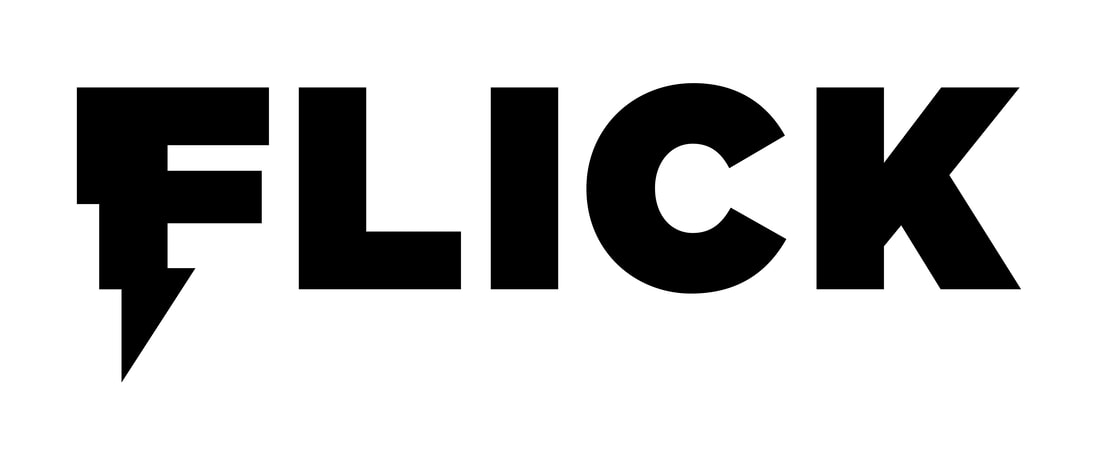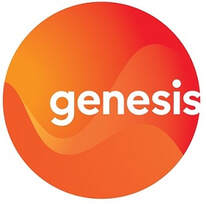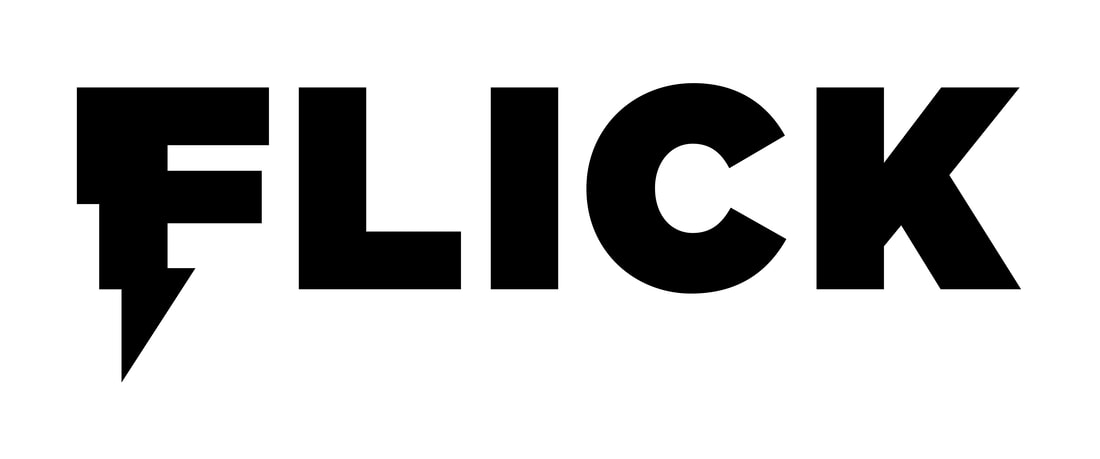Compare Power Companies - April 2024 Prices
(Rates Valid from 1 April 2024 until further notice)
Our trusted guide lets you compare electricity prices with confidence and find the best electricity company for your home in minutes. We compare standard rates from Genesis Energy, Contact Energy, Mercury, Meridian Energy, Electric Kiwi, Flick Electric and more, ensuring full coverage of major New Zealand cities.
Updated 25 July 2024
Summary
Know This: There are so many electricity tools - why have we published this guide?
Our guide allows you to contact an electricity company as an informed consumer. Specifically:
Our guide covers:
Summary
- Our guide is the first of its kind to compare power companies and outline a three-step process to get the best deal. Electricity prices are, for the most part, very difficult to compare. Some plans are fixed, some are variable and existing comparison sites sometimes don't make the distinction. Many retailers don't make it easy to understand either, making it hard to know which plan and company offers the best value.
- As this video outlines, you can enter the same information into four different price comparison tools and get four very different results. Many ask for personal details as well. Our purpose here is to bring clarity and help you make an informed choice. It goes without saying that we never collect personal details on our site either.
- We believe the laws around electricity pricing are deficient, given the inconsistent pricing, plans, offers, bonuses and even the application of GST and levies.
- As such, our research team has taken the view that comparing providers is, for most people, difficult, convoluted and unfair. To help bring clarity, we have sought the assistance of energy generators, regulatory bodies and leading pricing experts to help us publish this comparison.
- Our guide gives you the confidence to switch to the best provider by making an informed decision. Best of all, you will know exactly what you're paying because you pre-confirm your rates before signing up. While most plans are variable (meaning prices can change if and when your provider notifies you), we've also highlighted fixed-term plans.
- We continue to update and enhance this guide, If you have any comments, please email our power research team.
- Advertising Disclaimer: MoneyHub may earn a referral bonus for anyone that’s approved through some of the below links. Our research and findings are independent of any power company as all data is based on unit prices, daily charges and discounts applied. Please see our Advertising Policy for more details about how we make money.
Know This: There are so many electricity tools - why have we published this guide?
- We have published this guide in response to our concern with comparison tools which, for better or worse, tend to produce different results depending on what website you used.
- In some cases, only a handful of different providers are 'compared' when, in fact, there are more than ten offering their services.
- Our guide has been developed to do better and put you first with the most complete information. However, as always, the best approach is for you to compare your existing provider with leading power companies who give New Zealanders a fairer deal.
Our guide allows you to contact an electricity company as an informed consumer. Specifically:
- We want you to understand how pricing works - "daily rates" and "kWh unit charges" vary between cities and regions; we compare providers in major cities all over New Zealand.
- You'll know the prices for your area (or how to get them), so you can switch or join with confidence that you'll be saving money every month. We estimate that the average home can save between $100 and $1,000+ a year on power (depending on the number of people living at the property and how much electricity is used).
- We believe the best way to save money is to switch to the best-value provider and continue to compare annually (or whenever your contract ends if you're on a fixed-term contract) to ensure you're not overpaying.
Our guide covers:
MoneyHub Founder Christopher Walsh shares his views on power pricing and comparisons:
|
"In a recent Stuff.co.nz column, I said that electricity comparisons can be complicated. Many MoneyHub users have asked us about which electricity provider is the cheapest. The answer isn't simple – it depends on where you live and whether you're a low or standard user. But even then, there are many ways the industry makes it near-impossible to compare like for like".
"There is a lot of confusion and misunderstanding; several comparison websites exist, but even with the same address and usage details, you can end up getting different results. Power companies don't make understanding their prices easy either, and it's hard to look at dollars and cents and compare without understanding typical usages. When we research and update our power guides, there is a tremendous amount of work, which we don't believe the average New Zealander can be expected to make when choosing a provider". "Power companies know it's complicated. We believe hundreds of thousands of New Zealand households are paying a 'loyalty penalty' by staying with their existing power company. As the media has reported, there is a two-tier pricing system operating in New Zealand – those who compare, switch and save, and those who stay loyal and overpay. We believe that's unfair, and a lack of government regulation or oversight means price rises can outpace inflation. And, as we know, it is getting more expensive (as this report suggests)". "We have received complaints from everyday New Zealanders who have overpaid, found a better offer and notified their long-standing retailer they will switch, only to be offered huge ongoing discounts to keep them as a customer. We don't think that's fair either, but this may be an option once you've compared the market. I have made sure that our tools and reports will help you make an informed decision". |
MoneyHub Founder
Christopher Walsh |
We have summarised this guide in an easy-to-follow video:
Our Price Leading Power Companies - Fixed Term and Open Term
Getting quotes is an essential step before you switch. While our pricing tables look at average uses, Genesis leads with fixed-term offers and Flick leads with open terms.
Fixed Term: Special Offer With Our Partner Genesis - Rewarding New Zealanders Who Commit to a Great Value Genesis 12-Month Contract:
|
Open Term: Our Partner Flick - Putting the Power Back in Customers Hands:
|
Know This First: Electricity in New Zealand - Why Does it Cost So Much?
New Zealand is unique in that it relies heavily on natural energy for power; hydroelectric plants generate around 60% of our power. Combine the need for healthy lake levels with year-round extreme weather patterns (droughts, snow, floods) and the long-term issue of poorly insulated housing, and energy demand presents huge spikes.
Specifically, when we need power, we all need it at the same time. This causes the electricity price that power companies pay to the generators to jump up and down on any given week, depending on the weather conditions. The end result is that many people overpay for electricity when lower prices can easily be found.
Government data suggests electricity prices barely increase year on year but we know this is not the case. And as electricity is an indistinguishable service, we believe a trusted power provider with the lowest rates should, all other things being equal, offer the best deal.
Save Money and Be Fully Informed
Compare Power with Confidence: Download our power comparison spreadsheet here; our video explains how it works and why it provides a useful starting point to saving you money.
Specifically, when we need power, we all need it at the same time. This causes the electricity price that power companies pay to the generators to jump up and down on any given week, depending on the weather conditions. The end result is that many people overpay for electricity when lower prices can easily be found.
Government data suggests electricity prices barely increase year on year but we know this is not the case. And as electricity is an indistinguishable service, we believe a trusted power provider with the lowest rates should, all other things being equal, offer the best deal.
Save Money and Be Fully Informed
- Our suggested next steps are simple – compare your pricing and don’t be loyal or lazy unless you've verified that you're on the best deal. Our research below looks at Auckland, Wellington, Christchurch, Dunedin and Hamilton to help make sense of the current pricing and offers. We believe that by switching you can save hundreds of dollars per year.
Compare Power with Confidence: Download our power comparison spreadsheet here; our video explains how it works and why it provides a useful starting point to saving you money.
1. Understanding How Electricity is Priced and Making Sense of Your Power Bill
To make sense of your power bill, it's essential to know the facts:
How Energy Companies Charge You:
A power bill is made up of more than just power:
To start saving on your power bill, the first step is understanding the elements that make up the cost of electricity in New Zealand. Below is a simplified version of how the money you pay is distributed on the electricity bill:
Know this:
- Your power bill is made up of two elements; a fixed daily charge and a variable charge. Only the "variable" portion takes into account the total amount of energy (kWh) that your household consumes in a month.
- The variable charge rate varies significantly depending on the type of plan you have (low user or standard user). Low users pay a higher variable rate, whereas standard users pay a lower variable rate.
- The fixed daily charge also varies from low users to standard users. By law, low users pay between 60 to 120 cents + GST per day (this charge used to be 30 cents per day prior to April 2022). Standard users pay more (and how much that is, depends on where they live in New Zealand).
How Energy Companies Charge You:
- Daily Charge: Many retailers charge a daily fee to be a customer for being connected to the service. This is usually somewhere between 60 cents and $2.00.
- Unit Charge (kWh): This is the cost per kWh used, and is usually anywhere from $0.15 to $0.25. For example, a 1,000-watt fan heater needs 1,000 watts (1 kW) of power to make it work, and uses 1 kWh of energy in an hour. If you turned on this heater for an hour, you would be charged the kWh fee. And even if you are not using an appliance, you can still be charged. For example, if you leave a TV or computer on standby, it is still using power and creating a kWh cost on your energy bill.
- Electricity Authority (EA) Levy: The EA charges a small fee per kWh consumed to fund its role in regulating the electricity market.
- GST - GST is added to the total costs of 1-3 above.
A power bill is made up of more than just power:
To start saving on your power bill, the first step is understanding the elements that make up the cost of electricity in New Zealand. Below is a simplified version of how the money you pay is distributed on the electricity bill:
- 32% - Is for generating the electricity you use (mostly, renewable sources)
- 27% - Is used for distributing the electricity (commercial and residential power lines repair, and maintenance)
- 13% - Goes for the retail company (the operator that sends you the bill)
- 15% - GST (Goods and Services Tax)
- 10.5% - Is used for expanding and maintaining the national power grid; this is also known as transmission costs
- 3.5% - Has to do with the cost of reading and maintaining electricity meters nationwide
- 0.5% - Goes toward regulation of the electricity industry (i.e. costs of running the Electricity Authority)
- 0.5% - Goes toward the operating costs of the organizations that manage the day-to-day running of the electricity market
Know this:
- Only 13% of your power bill goes to the retailer. Despite this, the differences in prices charged by retailers continues to be significant as evidenced by our research below. Switching is arguably the only way to save, and the savings can be big.
- About 17% of your money goes towards the GST and the cost of maintaining electricity meters. There is literally nothing you can do to cut this cost.
- Approximately 70% of the electricity bill goes towards paying for the generation, transmission, and subsequent distribution of the energy you use. Lowering your energy consumption in kilowatts per hour will help save, but we believe switching providers will benefit you if you're with an 'expensive' plan. By switching, you pay less for the same benefit - power in your home.
- Regardless of your electricity supplier (retailer), the invoice must explicitly reflect the fixed and variable costs applied. Retailers can use different terms to refer to the same thing. If you have doubts, contact your provider to clarify the type of charge that is being made. With the knowledge gained in this guide, you will have no trouble understanding the operator's explanation.
- Total energy consumption in the month (units) is by far the highest of all charges. In other words, you should carefully monitor your kWh usage throughout the year in order to understand how to lower your electricity bill.
- Price Rises are NOT Always Due to Retailer Increases - it’s important to know that every year on or around April 1, lines companies all over New Zealand review their prices. This means that even if your electricity retailer doesn’t increase its own prices, a rise in the lines company fees will mean your power prices may rise.
Our Price Leading Power Companies - Fixed Term and Open Term
Getting quotes is an essential step before you switch. While our pricing tables look at average uses, Genesis leads with fixed-term offers and Flick leads with open terms.
Fixed Term: Special Offer With Our Partner Genesis - Rewarding New Zealanders Who Commit to a Great Value Genesis 12-Month Contract:
|
Open Term: Our Partner Flick - Putting the Power Back in Customers Hands:
|
2. Understanding your Meter and the Variable Charge
The type of meter installed in your property will determine what kind of variable charge the electricity company will apply to your bill. There are many types of meters available in New Zealand; below, we describe the most common. The terminology differs between energy companies, but we have grouped equivalent types of meters together.
The main differences tend to be:
Most homes would have two separate meters, one controlled (for the hot water, for example) and one uncontrolled (for lighting and power points).
The types of meter are known as follows:
1. Controlled meter (also called Economy)
2. Uncontrolled meter (also called Anytime, 24 hour)
3. Inclusive meter (also called Composite, All Day Economy, Part controlled)
4. Day / Night meters
You might also see electric companies offering additional rates; we describe them briefly below:
Know This: When comparing pricing plans between different electricity companies, you must compare the same type of variable charges so that you’re not comparing apples with oranges. For example, you should compare inclusive rates with inclusive rates, not day/night rates with inclusive rates.
The main differences tend to be:
- The energy supplied to your hot water cylinder,
- Whether the energy company can restrict or control its supply at certain times (controlled),
- If you have a constant and unrestricted supply to it (uncontrolled) or
- A combination of both (part controlled).
Most homes would have two separate meters, one controlled (for the hot water, for example) and one uncontrolled (for lighting and power points).
The types of meter are known as follows:
1. Controlled meter (also called Economy)
- This rate is for the controlled supply of electricity to selected appliances that are permanently wired to a separate meter.
- This means that the electricity supply for a hot water cylinder, heat pump or floor heating (for example) can be turned off during peak times for an allocated period determined by the network company.
- The energy is charged at a lower rate than on an uncontrolled meter. The controlled plans usually cover periods from 11pm to around 7am, where the power is charged at this rate.
2. Uncontrolled meter (also called Anytime, 24 hour)
- This type of meter provides a constant and unrestricted supply of energy to your appliances at the same price 24 hours a day. The rate is higher than that of a controlled meter and is not “controlled” by the energy company.
- This meter is used to supply the primary house connection to power appliances, power points and lighting.
3. Inclusive meter (also called Composite, All Day Economy, Part controlled)
- This meter combines the last two meters in one and charges consumption at a flat rate. One part of the meter provides unrestricted supply 24 hours a day, and the other part is subject to a controlled supply. The rate from this type of meter is lower than from an uncontrolled meter, as the flat rate covers general and controlled usage.
4. Day / Night meters
- Electricity used during the day is measured separately from electricity used at night. This can benefit people who use at least a third of their power at night.
- Day and night times may be defined differently by network and region, but generally, the day hours would be 07:00 to 23:00 and night times 23:00 to 07:00. To make the most of the night rate, you could consider having timers set up for appliances you want to run at night.
You might also see electric companies offering additional rates; we describe them briefly below:
- Night only – Energy is charged at a discounted rate and available only at certain hours of the night. Commonly used for hot water cylinders, pumps, underfloor heating and storage heaters
- Peak/Off-peak - Energy is charged at a lower rate during off-peak time, shoulder times (not peak or off-peak hours) and throughout the weekend; higher prices are charged at peak times. Energy companies may determine differently what hours are peak and off-peak for them.
- Winter/summer – Energy is charged at a higher rate during winter months (May to September) than in summer months (October to April).
Know This: When comparing pricing plans between different electricity companies, you must compare the same type of variable charges so that you’re not comparing apples with oranges. For example, you should compare inclusive rates with inclusive rates, not day/night rates with inclusive rates.
Smart Meters vs Analogue Meters
- More than 80% of New Zealand homes now have smart meters installed, and analogue meters are being phased out, but it’s still helpful to know the difference and the benefits of having a smart meter.
- An analogue meter is a device that measures how much electricity you consume and requires a “meter reader” to visit your property to manually verify how much electricity you’ve used since the last reading was taken. Because these readings are not taken every month, your bill will often be based on an estimate of your consumption. In addition, this meter doesn’t distinguish between peak and off-peak times, so you can’t benefit from cheaper rates.
- On the other hand, a smart meter records your electricity usage at half-hourly intervals and transmits this information directly to your electricity provider, so your bill is based on your actual consumption and not on estimates. In addition, smart meters record the time when you use energy, so if you’re on a plan with peak and off-peak rates, you can save money by scheduling your devices to run at night or on weekends and take advantage of the cheaper rates.
- You can find more information about smart meters here.
Our Price Leading Power Companies - Fixed Term and Open Term
Getting quotes is an essential step before you switch. While our pricing tables look at average uses, Genesis leads with fixed-term offers and Flick leads with open terms.
Fixed Term: Special Offer With Our Partner Genesis - Rewarding New Zealanders Who Commit to a Great Value Genesis 12-Month Contract:
|
Open Term: Special Offer With Our Partner Flick - Putting the Power Back in Customers Hands:
|
Our Power Company Comparison (and how to get the best deal)
- The cheapest energy plan for you depends on where you live and your usage.
- For our research, we took the average energy consumption per home in Auckland, Hamilton, Wellington, Christchurch, Hamilton and Dunedin as reported by the EA for 2021.
- Using a specific annual kWh per city for Standard users, we obtained online quotes for 20+ plans from 10+ power companies.
- We ranked their current prices at the time of research, from lowest to highest, taking into account discounts and sign-up bonuses.
- For our sample, we considered addresses with inclusive meters installed as we thought this would be a good indication of the energy company’s overall rates.
- Some plans are fixed, some are variable; existing comparison sites don't make the distinction but we believe it's essential to do so.
- Prices are correct as of 1 April 2024. Our research team updates this guide periodically.
- The video below explains the summary of our work, and why it differs (and is more complete) than some comparison tools.
- We have only included discounts with a specific monetary value (sign up bonuses, discounts, etc.) but we have not included free hours of power, as the savings derived from these would depend on the particular consumer.
- We have indicated which discounts have been applied to the annual amounts shown on our price comparison.
Get Quotes using our direct-to-price links, exclusively on MoneyHub:
- We don't believe in hiding numbers, calculations or making power comparison any more complicated than it already is. We want to simplify power prices and are the only online authority to disclose how we calculate prices.
- Our video below explains how our methodology works - please don't fear the complexity because our research team has made it effortless to use. Our transparent methodology drives the tables for Auckland, Hamilton, Wellington, Christchurch, Hamilton and Dunedin below for standard and low users with inclusive meters installed. Please note, if you have a different meter setup you may get a different result.
- Compare Power with Confidence: Download our power comparison spreadsheet here; our video explains how it works and why it provides a useful starting point to saving you money. We update our spreadsheet after the months of April and October with the latest prices.
- We want you to get fast quotes that let you compare accurately so you can sign up with a power provider that offers you the best deal. The pricing can be found below:
- Contact
- Meridian
- Flick
- Mercury
- Powershop
- Globug
- Frank
- Electric Kiwi
- Ecotricity
- Genesis
- Nova
- Pulse Energy
- Slingshot
- Octopus
Our video below explains our process and calculations, providing a useful starting point to saving you money:
MoneyHub Founder Christopher Walsh explains how our comparisons compare like for like and see through high prices with 'bonuses':
|
"Our power guide and price comparison is unique in that it compares the overall costs of rates and special deals so you can compare apples with apples. Many companies offer freebies and promos to get you to switch to their service, but the actual price of your electricity bill can cost you more in the long run.
For example, a company offering a $150 joining fee may be $300 more expensive over 6 months compared to picking a leading provider. This means you would pay $150 more, hidden in the extra fees and higher per-unit costs. For this reason, we remind every New Zealand to be very cautious when a company offers you free appliances, joining credits, free hours of power or night power etc.; there is no such thing as free - someone's paying for it, and with the wrong deal, it's probably you. And when it comes to bundling, we are very cautious of the savings - in many cases, you'll pay more, as our dedicated guide explains. Our pricing tables below highlight the best providers with methodology that's transparent and you can repeat yourself and make an informed choice". |
MoneyHub Founder
Christopher Walsh |
Cheapest Energy Companies in Auckland
Standard Users
- The Table below lists Power Companies ranked in order of Standard User Plans in Auckland
- Rates valid as of April 2024, based on an inclusive meter and an annual consumption of 9,108 kWh.
- The annual charge estimate includes GST.
- Please know those power companies that offer open plans (i.e. not fixed-term contracts) can change the prices later and will give (at least) 30 days' notice (by email usually) of such price changes. They can go up and down.
- Given power prices (daily and unit) change a little from time to time, our research team will next update this guide in October 2024. Our focus is to make you aware of the range in prices and plans and help you decide what's right for you, and make the easy moves to switch.
- Please note the prices below excludes special MoneyHub discounts, specifically the leading Genesis fixed-term discounts (activated when you insert 'MoneyHub' in the Genesis partner name to validate the discount).
- Please note, you don't need to be moving homes to get the discount - Genesis and Flick both welcome customers who want to switch and save on power, month after month.
- For our analysis, we have included plans that are aimed at EV owners but do not actually require you to own an Electric Vehicle. We consider these plans might be useful to anyone willing to shift some of their energy consumption to the night-time.
| Plan Type | Energy Provider and Plan | Annual Charge estimate | Contract - Fixed Term or Open? | Discount ID |
|---|---|---|---|---|
| Regular power plan | Mercury Open Term (Standard) | $2,498.38 | Open | . |
| Regular power plan | Powershop (Standard) | $2,585.74 | Open | DISC-08 |
| Regular power plan | Frank Energy (Standard) | $2,598.66 | Open | . |
| EV plan | Z Energy - EV at Home Plan | $2,636.44 | Open | EV05 |
| Regular power plan | Electric Kiwi - Prepay 300 (Standard) | $2,707.94 | Open | . |
| Regular power plan | Genesis Energy Plus (Standard) | $2,716.33 | Open or Fixed | DISC-03 |
| Regular power plan | Mercury 1 Year Fixed (Standard) | $2,776.64 | Fixed (12 months) | DISC-04 |
| Regular power plan | Globug (Standard) | $2,801.78 | Open | . |
| Regular power plan | Meridian 2- year contract (Standard) | $2,822.87 | Fixed (24 months) | DISC-07 |
| EV plan | Contact EV - Good Charge (Standard) | $2,823.85 | Open | . |
| Regular power plan | Contact Basic Plan (Standard) | $2,829.64 | Open | . |
| Regular power plan | Flick Energy Off Peak (Standard) | $2,834.97 | Open | . |
| Regular power plan | Flick Energy Flat (Standard) | $2,842.13 | Open | . |
| Regular power plan | Meridian No Fixed Term (Standard) | $2,849.25 | Open | DISC-10 |
| Regular power plan | Octopus Flexi (Standard) | $3,154.12 | Open | . |
| Regular power plan | Octopus Peaker (Standard) | $3,154.12 | Open | . |
| Regular power plan | Ecotricity ecoWHOLESALE (Standard) | $3,195.97 | Open (prices change every 30 minutes) | . |
| Regular power plan | Nova Energy (Standard) | $3,231.18 | Open | . |
| Regular power plan | Electric Kiwi - MoveMaster (Standard) | $3,241.17 | Open | . |
| Regular power plan | Ecotricity ecoSAVER (Standard) | $3,278.37 | Open | . |
| Regular power plan | Ecotricity ecoANYTIME (Standard) | $3,292.45 | Open (prices fixed for 12 months) | . |
| Regular power plan | Electric Kiwi - Kiwi (Standard) | $3,537.94 | Open | . |
Important:
Discounts:
The following discounts have already been applied to the annual charge estimate figure shown on the table above:
- Please be aware that the sign-up bonuses are one-off discounts. Any credit publicly available has been applied in year one. However, the credit will not be applied in the second year. This means the estimated pricing in the above table is valid only for 12 months.
Discounts:
- Please note the prices exclude all discounts promoted by third-party power-switching websites.
The following discounts have already been applied to the annual charge estimate figure shown on the table above:
- DISC-03: 2% Direct Debit, 1% eBilling, 3% fixed term + $100 on 12 month sign up, free Power Shout hours
- DISC-04: $250 account credit, prices fixed for 1 year, $150 Termination Fee applies
- DISC-07: $200 credit upon joining, prices fixed for 24 months
- DISC-08: $150 credit for new customers upon online signup
- DISC-10: $10 monthly credit, variable rates during the year, open contract
- EV05: 3 hours of free power everyday (3am to 6am), already taken into account in Moneyhub's estimated annual price
Cheapest Energy Companies in Hamilton
Standard Users
- The Table below lists Power Companies ranked in order of Standard User Plans in Hamilton.
- Rates valid as of April 2024, based on an inclusive meter and an annual consumption of 8,900 kWh.
- The annual charge estimate includes GST.
- Please know those power companies that offer open plans (i.e. not fixed-term contracts) can change the prices later and will give (at least) 30 days' notice (by email usually) of such price changes. They can go up and down.
- Given power prices (daily and unit) change a little from time to time, our research team will next update this guide in October 2024. Our focus is to make you aware of the range in prices and plans and help you decide what's right for you, and make the easy moves to switch.
- Please note the prices below excludes special MoneyHub discounts, specifically the leading Genesis fixed-term discounts (activated when you insert 'MoneyHub' in the Genesis partner name to validate the discount).
- Please note, you don't need to be moving homes to get the discount - Genesis and Flick both welcome customers who want to switch and save on power, month after month.
- For our analysis, we have included plans that are aimed at EV owners but do not actually require you to own an Electric Vehicle. We consider these plans might be useful to anyone willing to shift some of their energy consumption to the night-time.
| Plan Type | Energy Provider and Plan | Annual Charge estimate | Contract - Fixed Term or Open? | Discount ID |
|---|---|---|---|---|
| Regular power plan | Contact Basic Plan (Standard) | $2,413.38 | Open | . |
| Regular power plan | Mercury Open Term (Standard) | $2,568.03 | Open | . |
| Regular power plan | Frank Energy (Standard) | $2,685.31 | Open | . |
| Regular power plan | Electric Kiwi - Prepay 300 (Standard) | $2,719.74 | Open | . |
| EV plan | Z Energy - EV at Home Plan | $2,817.76 | Open | EV05 |
| Regular power plan | Globug (Standard) | $2,830.66 | Open | . |
| Regular power plan | Powershop (Standard) | $2,833.43 | Open | DISC-08 |
| Regular power plan | Mercury 1 Year Fixed (Standard) | $2,861.22 | Fixed (12 months) | DISC-04 |
| Regular power plan | Octopus Peaker (Standard) | $2,861.26 | Open | . |
| Regular power plan | Meridian 2- year contract (Standard) | $2,870.90 | Fixed (24 months) | DISC-07 |
| Regular power plan | Meridian No Fixed Term (Standard) | $2,948.28 | Open | DISC-10 |
| Regular power plan | Flick Energy Off Peak (Standard) | $2,951.64 | Open | . |
| Regular power plan | Flick Energy Flat (Standard) | $2,956.35 | Open | . |
| Regular power plan | Octopus Flexi (Standard) | $2,964.40 | Open | . |
| Regular power plan | Genesis Energy Plus (Standard) | $2,976.32 | Open or Fixed | DISC-03 |
| EV plan | Contact EV - Good Charge (Standard) | $3,132.52 | Open | . |
| Regular power plan | Electric Kiwi - MoveMaster (Standard) | $3,361.66 | Open | . |
| Regular power plan | Ecotricity ecoWHOLESALE (Standard) | $3,365.62 | Open (prices change every 30 minutes) | . |
| Regular power plan | Nova Energy (Standard) | $3,381.09 | Open | . |
| Regular power plan | Ecotricity ecoANYTIME (Standard) | $3,403.86 | Open (prices fixed for 12 months) | . |
| Regular power plan | Ecotricity ecoSAVER (Standard) | $3,414.26 | Open | . |
| Regular power plan | Electric Kiwi - Kiwi (Standard) | $3,701.40 | Open | . |
Important:
Discounts:
The following discounts have already been applied to the annual charge estimate figure shown on the table above:
- Please be aware that the sign-up bonuses are one-off discounts. Any credit publicly available has been applied in year one. However, the credit will not be applied in the second year. This means the estimated pricing in the above table is valid only for 12 months.
Discounts:
- Please note the prices exclude all discounts promoted by third-party power-switching websites.
The following discounts have already been applied to the annual charge estimate figure shown on the table above:
- DISC-03: 2% Direct Debit, 1%eBilling, 3% fixed term + $100 on 12 month sign up, free Power Shout hours
- DISC-04: $250 account credit, prices fixed for 1 year, $150 Termination Fee applies
- DISC-07: $200 credit upon joining, prices fixed for 24 months
- DISC-08: $150 credit for new customers upon online signup
- DISC-10: $10 monthly credit, variable rates during the year, open contract
- EV05: 3 hours of free power everyday (3am to 6am), already taken into account in Moneyhub's estimated annual price
Cheapest Energy Companies in Wellington
Standard Users
- The Table below lists Power Companies ranked in order of Standard User Plans in Wellington.
- Rates valid as of April 2024, based on an inclusive meter and an annual consumption of 9,094 kWh.
- The annual charge estimate includes GST.
- Please know those power companies that offer open plans (i.e. not fixed-term contracts) can change the prices later and will give (at least) 30 days' notice (by email usually) of such price changes. They can go up and down.
- Given power prices (daily and unit) change a little from time to time, our research team will next update this guide in October 2024. Our focus is to make you aware of the range in prices and plans and help you decide what's right for you, and make the easy moves to switch.
- Please note the prices below excludes special MoneyHub discounts, specifically the leading Genesis fixed-term discounts (activated when you insert 'MoneyHub' in the Genesis partner name to validate the discount).
- Please note, you don't need to be moving homes to get the discount - Genesis and Flick both welcome customers who want to switch and save on power, month after month.
- For our analysis, we have included plans that are aimed at EV owners but do not actually require you to own an Electric Vehicle. We consider these plans might be useful to anyone willing to shift some of their energy consumption to the night-time.
| Plan Type | Energy Provider and Plan | Annual Charge estimate | Contract - Fixed Term or Open? | Discount ID |
|---|---|---|---|---|
| Regular power plan | Mercury Open Term (Standard) | $2,256.62 | Open | . |
| Regular power plan | Powershop (Standard) | $2,390.96 | Open | DISC-08 |
| EV plan | Z Energy - EV at Home Plan | $2,433.05 | Open | EV05 |
| Regular power plan | Frank Energy (Standard) | $2,459.29 | Open | . |
| Regular power plan | Electric Kiwi - Prepay 300 (Standard) | $2,549.10 | Open | . |
| Regular power plan | Mercury 1 Year Fixed (Standard) | $2,559.82 | Fixed (12 months) | DISC-04 |
| Regular power plan | Meridian 2- year contract (Standard) | $2,587.93 | Fixed (24 months) | DISC-07 |
| Regular power plan | Genesis Energy Plus (Standard) | $2,591.16 | Open or Fixed | DISC-03 |
| Regular power plan | Meridian No Fixed Term (Standard) | $2,620.06 | Open | DISC-10 |
| Regular power plan | Flick Energy Off Peak (Standard) | $2,629.57 | Open | . |
| Regular power plan | Flick Energy Flat (Standard) | $2,631.97 | Open | . |
| Regular power plan | Contact Basic Plan (Standard) | $2,654.26 | Open | . |
| Regular power plan | Globug (Standard) | $2,662.71 | Open | . |
| Regular power plan | Ecotricity ecoWHOLESALE (Standard) | $2,789.48 | Open (prices change every 30 minutes) | . |
| EV plan | Contact EV - Good Charge (Standard) | $2,794.49 | Open | . |
| Regular power plan | Octopus Flexi (Standard) | $2,831.31 | Open | . |
| Regular power plan | Octopus Peaker (Standard) | $2,831.31 | Open | . |
| Regular power plan | Ecotricity ecoSAVER (Standard) | $2,956.72 | Open | . |
| Regular power plan | Ecotricity ecoANYTIME (Standard) | $2,970.46 | Open (prices fixed for 12 months) | . |
| Regular power plan | Nova Energy (Standard) | $2,990.30 | Open | . |
| Regular power plan | Electric Kiwi - MoveMaster (Standard) | $3,132.21 | Open | . |
| Regular power plan | Electric Kiwi - Kiwi (Standard) | $3,581.65 | Open | . |
Important:
Discounts:
The following discounts have already been applied to the annual charge estimate figure shown on the table above:
- Please be aware that the sign-up bonuses are one-off discounts. Any credit publicly available has been applied in year one. However, the credit will not be applied in the second year. This means the estimated pricing in the above table is valid only for 12 months.
Discounts:
- Please note we have excluded all discounts promoted by third-party power-switching websites.
The following discounts have already been applied to the annual charge estimate figure shown on the table above:
- DISC-03: 2% Direct Debit, 1%eBilling, 3% fixed term + $100 on 12 month sign up, free Power Shout hours
- DISC-04: $250 account credit, prices fixed for 1 year, $150 Termination Fee applies
- DISC-07: $200 credit upon joining, prices fixed for 24 months
- DISC-08: $150 credit for new customers upon online signup
- DISC-10: $10 monthly credit, variable rates during the year, open contract
- EV05: 3 hours of free power everyday (3am to 6am), already taken into account in Moneyhub's estimated annual price
Cheapest Energy Companies in Christchurch
Standard Users
- The Table below lists Power Companies ranked in order of Standard User Plans in Christchurch.
- Rates valid as of April 2024, based on an inclusive meter and an annual consumption of 10,210 kWh.
- The annual charge estimate includes GST.
- Please know those power companies that offer open plans (i.e. not fixed-term contracts) can change the prices later and will give (at least) 30 days' notice (by email usually) of such price changes. They can go up and down.
- Given power prices (daily and unit) change a little from time to time, our research team will next update this guide in October 2024. Our focus is to make you aware of the range in prices and plans and help you decide what's right for you, and make the easy moves to switch.
- Please note the prices below excludes special MoneyHub discounts, specifically the leading Genesis fixed-term discounts (activated when you insert 'MoneyHub' in the Genesis partner name to validate the discount).
- Please note, you don't need to be moving homes to get the discount - Genesis and Flick both welcome customers who want to switch and save on power, month after month.
- For our analysis, we have included plans that are aimed at EV owners but do not actually require you to own an Electric Vehicle. We consider these plans might be useful to anyone willing to shift some of their energy consumption to the night-time.
| Plan Type | Energy Provider and Plan | Annual Charge estimate | Contract - Fixed Term or Open? | Discount ID |
|---|---|---|---|---|
| EV plan | Z Energy - EV at Home Plan | $2,597.72 | Open | EV05 |
| Regular power plan | Frank Energy (Standard) | $2,600.15 | Open | . |
| Regular power plan | Powershop (Standard) | $2,737.76 | Open | DISC-08 |
| Regular power plan | Electric Kiwi - Prepay 300 (Standard) | $2,833.77 | Open | . |
| EV plan | Contact EV - Good Charge (Standard) | $2,918.92 | Open | . |
| Regular power plan | Mercury 1 Year Fixed (Standard) | $2,964.57 | Fixed (12 months) | DISC-04 |
| Regular power plan | Flick Energy Flat (Standard) | $2,995.17 | Open | . |
| Regular power plan | Globug (Standard) | $3,000.68 | Open | . |
| Regular power plan | Meridian 2- year contract (Standard) | $3,066.10 | Fixed (24 months) | DISC-07 |
| Regular power plan | Genesis Energy Plus (Standard) | $3,074.64 | Open or Fixed | DISC-03 |
| Regular power plan | Meridian No Fixed Term (Standard) | $3,088.64 | Open | DISC-10 |
| Regular power plan | Octopus Flexi (Standard) | $3,182.84 | Open | . |
| Regular power plan | Octopus Peaker (Standard) | $3,182.84 | Open | . |
| Regular power plan | Flick Energy Off Peak (Standard) | $3,187.24 | Open | . |
| Regular power plan | Contact Basic Plan (Standard) | $3,201.48 | Open | . |
| Regular power plan | Mercury Open Term (Standard) | $3,214.57 | Open | . |
| Regular power plan | Ecotricity ecoWHOLESALE (Standard) | $3,353.72 | Open (prices change every 30 minutes) | . |
| Regular power plan | Ecotricity ecoANYTIME (Standard) | $3,520.66 | Open (prices fixed for 12 months) | . |
| Regular power plan | Nova Energy (Standard) | $3,525.93 | Open | . |
| Regular power plan | Ecotricity ecoSAVER (Standard) | $3,544.85 | Open | . |
| Regular power plan | Electric Kiwi - MoveMaster (Standard) | $3,633.75 | Open | . |
| Regular power plan | Electric Kiwi - Kiwi (Standard) | $4,037.49 | Open | . |
Important:
Discounts:
The following discounts have already been applied to the annual charge estimate figure shown on the table above:
- Please be aware that the sign-up bonuses are one-off discounts. Any credit publicly available has been applied in year one. However, the credit will not be applied in the second year. This means the estimated pricing in the above table is valid only for 12 months.
Discounts:
- Please note the prices exclude all discounts promoted by third-party power-switching websites.
The following discounts have already been applied to the annual charge estimate figure shown on the table above:
- DISC-03: 2% Direct Debit, 1%eBilling, 3% fixed term + $100 on 12 month sign up, free Power Shout hours
- DISC-04: $250 account credit, prices fixed for 1 year, $150 Termination Fee applies
- DISC-07: $200 credit upon joining, prices fixed for 24 months
- DISC-08: $150 credit for new customers upon online signup
- DISC-10: $10 monthly credit, variable rates during the year, open contract
- EV05: 3 hours of free power everyday (3am to 6am), already taken into account in Moneyhub's estimated annual price
Cheapest Energy Companies in Dunedin
Standard Users
- The Table below lists Power Companies ranked in order of Standard User Plans in Dunedin.
- Rates valid as of April 2024, based on an inclusive meter and an annual consumption of 9,916 kWh.
- The annual charge estimate includes GST.
- Please know those power companies that offer open plans (i.e. not fixed-term contracts) can change the prices later and will give (at least) 30 days' notice (by email usually) of such price changes. They can go up and down.
- Given power prices (daily and unit) change a little from time to time, our research team will next update this guide in October 2024. Our focus is to make you aware of the range in prices and plans and help you decide what's right for you, and make the easy moves to switch.
- Please note the prices below excludes special MoneyHub discounts, specifically the leading Genesis fixed-term discounts (activated when you insert 'MoneyHub' in the Genesis partner name to validate the discount).
- Please note, you don't need to be moving homes to get the discount - Genesis and Flick both welcome customers who want to switch and save on power, month after month.
- For our analysis, we have included plans that are aimed at EV owners but do not actually require you to own an Electric Vehicle. We consider these plans might be useful to anyone willing to shift some of their energy consumption to the night-time.
| Plan Type | Energy Provider and Plan | Annual Charge estimate | Contract - Fixed Term or Open? | Discount ID |
|---|---|---|---|---|
| EV plan | Z Energy - EV at Home Plan | $2,777.04 | Open | EV05 |
| Regular power plan | Powershop (Standard) | $2,777.66 | Open | DISC-08 |
| Regular power plan | Frank Energy (Standard) | $2,783.40 | Open | . |
| Regular power plan | Contact Basic Plan (Standard) | $2,826.83 | Open | . |
| Regular power plan | Globug (Standard) | $2,890.76 | Open | . |
| EV plan | Contact EV - Good Charge (Standard) | $2,903.57 | Open | . |
| Regular power plan | Genesis Energy Plus (Standard) | $3,009.60 | Open or Fixed | DISC-03 |
| Regular power plan | Electric Kiwi - Prepay 300 (Standard) | $3,047.96 | Open | . |
| Regular power plan | Meridian 2- year contract (Standard) | $3,137.33 | Fixed (24 months) | DISC-07 |
| Regular power plan | Flick Energy Flat (Standard) | $3,137.65 | Open | . |
| Regular power plan | Ecotricity ecoWHOLESALE (Standard) | $3,140.38 | Open (prices change every 30 minutes) | . |
| Regular power plan | Flick Energy Off Peak (Standard) | $3,142.53 | Open | . |
| Regular power plan | Mercury 1 Year Fixed (Standard) | $3,150.99 | Fixed (12 months) | DISC-04 |
| Regular power plan | Meridian No Fixed Term (Standard) | $3,224.67 | Open | DISC-10 |
| Regular power plan | Mercury Open Term (Standard) | $3,400.99 | Open | . |
| Regular power plan | Octopus Flexi (Standard) | $3,460.63 | Open | . |
| Regular power plan | Octopus Peaker (Standard) | $3,460.63 | Open | . |
| Regular power plan | Ecotricity ecoSAVER (Standard) | $3,493.11 | Open | . |
| Regular power plan | Ecotricity ecoANYTIME (Standard) | $3,525.58 | Open (prices fixed for 12 months) | . |
| Regular power plan | Nova Energy (Standard) | $3,559.63 | Open | . |
| Regular power plan | Electric Kiwi - MoveMaster (Standard) | $3,577.54 | Open | . |
| Regular power plan | Electric Kiwi - Kiwi (Standard) | $3,716.96 | Open | . |
Important:
Discounts:
The following discounts have already been applied to the annual charge estimate figure shown on the table above:
- Please be aware that the sign-up bonuses are one-off discounts. Any credit publicly available has been applied in year one. However, the credit will not be applied in the second year. This means the estimated pricing in the above table is valid only for 12 months.
Discounts:
- Please note the prices exclude all discounts promoted by third-party power-switching websites.
The following discounts have already been applied to the annual charge estimate figure shown on the table above:
- DISC-03: 2% Direct Debit, 1%eBilling, 3% fixed term + $100 on 12 month sign up, free Power Shout hours
- DISC-04: $250 account credit, prices fixed for 1 year, $150 Termination Fee applies
- DISC-07: $200 credit upon joining, prices fixed for 24 months
- DISC-08: $150 credit for new customers upon online signup
- DISC-10: $10 monthly credit, variable rates during the year, open contract
- EV05: 3 hours of free power everyday (3am to 6am), already taken into account in Moneyhub's estimated annual price
Disclaimers:
- Our intention is to help you make an informed decision. No savings are guaranteed - power companies can change their variable plan rates (with 30 days’ notice). For this reason, the annual cost presented alongside variable plans are extrapolations of the current rates. These rates are subject to change.
- You need to make an informed choice based on research specific to your home. To get the best possible pricing, we suggest comparing your existing provider against current offers on the market. The best way is to arrange quotes from 3 to 5 of the top-listed power companies below to understand what you're paying and the alternatives available.
Our Price Leading Power Companies - Fixed Term and Open Term
Getting quotes is an essential step before you switch. While our pricing tables look at average uses, Genesis leads with fixed-term offers and Flick leads with open terms.
Fixed Term: Special Offer With Our Partner Genesis - Rewarding New Zealanders Who Commit to a Great Value Genesis 12-Month Contract:
|
Open Term: Our Partner Flick - Putting the Power Back in Customers Hands:
|
Next Steps - Our EASY Three-Step Process to Get the Best Electricity Deal
Shortlist three to five providers from our comparison data above, compare them to your existing provider and download our comparison spreadsheetWe have comprehensively compared many cities and a range of different energy consumptions. From the list above, you can shortlist three to five providers who stand out for pricing and benefits. Our shortlist per city helps you select with confidence.
Once you have done this, you can download our comparison template . If you complete it (which takes around 10-15 minutes), you will be able to pinpoint the cheapest provider for your annual usage. For the best results, compare the options against your current provider - you can get the prices from your last bill and input them in on the far right section of our comparison spreadsheet. |
Source the latest electricity prices (daily charge and kWh rates)Next, you'll need to open the spreadsheet and source ten numbers to power the comparison. The good news is you can get those numbers quickly as the video above outlines.
What you'll need to do:
Get local power prices in seconds - each of the links below takes you to the get-a-quote phase:
Bundle options: |
Confirm the best electricity provider and switchOnce you're comfortable with the pricing, the best approach is to get the electricity company to send you a quote that confirms the pricing and how long the terms are valid for. It will look something like this example from Meridian.
Once received, you check over it and if you're happy, sign up for the deal offered. It's a good idea to be aware of the terms of any sign-up bonus, perks, direct debit or early repayment discounts as this can reduce your overall costs further. |
Electricity Bills - Frequently Asked Questions
Electricity pricing should be simple, but inconsistencies between providers can make it complex. We list popular questions below and answer them to help you make a better decision on whether to switch or stay with your current provider.
Am I a standard user or a low user for power?
Your power bill is a good starting point since it has to specify which plan is currently being applied to your household. To be able to sign up to a low user plan, your energy consumption must be below a certain threshold (measured in kWh), mentioned in the next questions.
What power plan is the best option for my home?
- If your annual electricity consumption is less than 7,000 kWh (and live on the North Island) or 8,000 kWh (and live in the lower parts of the South Island), your best option is to opt for a low-user plan.
- However, if your annual consumption is higher than 9,000 kWh (North Island) or 10,000 kWh (lower parts of the South Island), then the standard plan is more cost-effective.
- If your annual consumption sits between 7,000 kWh and 9,000 kWh (North Island) or between 8,000 kWh and 10,000 kWh (lower parts of the South Island), then you should take into account additional considerations, including the rates offered by the retailers in your area.
Can I opt for a low user plan?
According to the low-user legislation, if your household consumes less than 8,000 kWh per year (North Island) or 9,000 kWh per year (lower parts of the South Island), you can be considered a low user. Simply put, you need to know your household consumption over a year to know for sure what category applies to your case.
Can I switch between low user and standard user plans?
Yes, you can. Assuming you comply with the consumption thresholds established by the current legislation, you can switch from a standard user plan to a low user plan, or vice-versa.
What is the average electricity cost per kWh in New Zealand?
According to the NZ Ministry of Business, Innovation & Employment, the average electricity costs per kWh for a low user in New Zealand can vary from 26.75 cents (Dunedin) to 41.68 cents (Kerikeri), with the average cost per kWh in Auckland 29.67 cents (with Wellington and Christchurch around the same).
What information do I need to compare energy costs?
You'll need to know your approximate kilowatt-hour use per year, and the cost per kWh in your local area. To make a complete comparison, you'll need to know the daily charge as well, which will vary between electricity companies, and any discounts offered for early payments, e-statements etc. Making the comparison without a template to follow is difficult - we believe our downloadable tool and comparison data to be the most comprehensive in New Zealand.
How many kilowatt-hours should I be using each year?
According to the Electricity Authority (EA), an average home in New Zealand should consume 8,000 kWh per year (North Island) or 9,000 kWh per year (lower parts of South Island). Obviously, these are average values that can vary significantly according to your lifestyle.
What is the average power bill in New Zealand?
The average NZ household, comprised of a couple with two kids under the age of 18, pay between $2,000 to $3,000 a year in electricity. Take into account though, that your power bill might vary depending on several factors, including the number of occupants of the household, the type of appliances used, and more.
How can a smart meter benefit my energy bill?
Smart meters can help lower your electricity bill by sending accurate information about your energy consumption and thus prevent using an "estimate" based on the consumption of previous months. This usually happens when the retailer is not able to take the actual reading on traditional electricity meters.
What’s the difference between kWh and kW?
Kilowatts (kW) give you an idea of the energy consumed by an appliance, whereas kilowatts-hour (kWh) indicates the total amount of energy used by such an appliance during a determined period of time. For instance, a 10W (0.01kW) led bulb consumes less energy than a 50W (0.05kW) incandescent light bulb. However, if you leave the led bulb on for 10 hours, it will consume the same energy as the incandescent bulb in 2 hours (0.1kWh). Simply put, in addition to energy efficiency, the way you use the appliance also matters a lot.
What is the difference between transmission and distribution?
Although they seem to have to do with the same thing (moving electrical energy from one place to another), there are notable differences between these concepts. Transmission lines require huge poles and thick cables to carry enormous amounts of power throughout New Zealand. You can think of them as the highways that go from one city to another. The distribution lines, on the other hand, use smaller poles, transformers, and cables of smaller diameter to carry the necessary amount of energy to the communities and houses.
Why does the cost of transmission and distribution vary from place to place in New Zealand?
The explanation is very simple. The most remote areas of New Zealand require transmission lines just like the rest of the country. However, given the difficult topography, the cost of maintaining these lines is usually higher. The same principle applies to the distribution lines within certain areas.
What is the ICP number?
ICP is your Installation Control Point (ICP), which identifies your property on the New Zealand electricity network. It consists of 15 digits and it will be specified somewhere on your current power bill.
Can I change my meter type?
Yes, but there is a cost involved. If you are on an Uncontrolled meter for example, but think that you would benefit from a day/night plan, you would need to change your meter installation. In such instances, it's likely you'll need to pay for the installation while the power company covers the cost of the metre per CAB guidance.
Our Price Leading Power Companies - Fixed Term and Open Term
Getting quotes is an essential step before you switch. While our pricing tables look at average uses, Genesis leads with fixed-term offers and Flick leads with open terms.
Fixed Term: Special Offer With Our Partner Genesis - Rewarding New Zealanders Who Commit to a Great Value Genesis 12-Month Contract:
|
Open Term: Our Partner Flick - Putting the Power Back in Customers Hands:
|
Related Guides:
Power Company Reviews:
- Comparison of Power Plans for Electric Vehicles
- How to Save Money on Power Bills
- Fixed Contracts vs Open Power Plans
Power Company Reviews:



